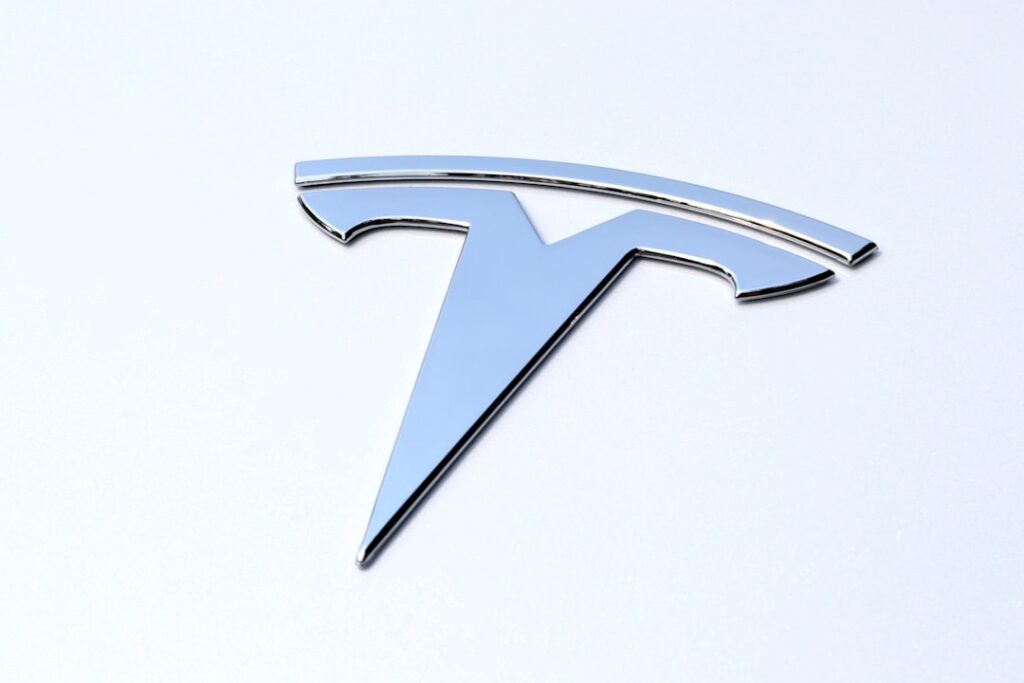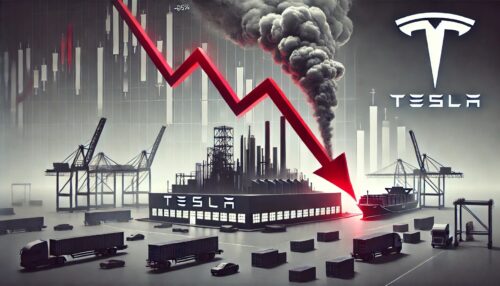

Monday, March 31, 2025, 9:48 AM EDT
Editorial Log: This article was developed through a comprehensive analysis of the latest news reports and financial data concerning Tesla Inc. (TSLA). Key themes include the impact of new tariffs on the automotive sector, anticipated delivery figures, and the broader market response.
Introduction
Tesla Inc. (TSLA) is facing significant market pressures as its stock experiences a notable decline. Factors contributing to this downturn include recent tariff announcements by the U.S. administration and concerns over the company’s first-quarter delivery figures.
Market Reaction to Tariff Announcements
On Monday, March 31, 2025, U.S. stock futures fell sharply following the announcement of new tariffs by President Donald Trump. These tariffs impose a 25% duty on imported automobiles and parts that do not comply with the United States-Mexico-Canada Agreement (USMCA). Tesla’s stock dropped 5.6% in premarket trading, reflecting investor apprehension about the potential impact on the company’s production costs and pricing strategy.

Anticipation of First-Quarter Delivery Figures
Investors are also bracing for Tesla’s first-quarter delivery data, expected to be released later this week. Analysts have revised their delivery estimates downward, projecting figures between 315,000 and 369,000 vehicles. This range falls below the first-quarter 2024 deliveries of 386,810 units, marking the lowest quarterly delivery since the third quarter of 2022.
Broader Automotive Sector Impact
The tariff-induced market volatility has affected the broader automotive sector. General Motors (GM) and Ford Motor Company (F) experienced premarket stock declines of 2.2% and 1.3%, respectively. Stellantis (STLA) also saw a 2.8% drop. These movements underscore the market’s sensitivity to trade policy changes and their potential ramifications on the automotive industry.
Analyst Perspectives
Stephen Gengaro, an analyst at Stifel, has revised Tesla’s price target, citing anticipated sales challenges. Concerns include CEO Elon Musk’s political affiliations, which may have alienated a segment of Tesla’s traditional customer base. Additionally, the introduction of a refreshed Model Y has contributed to uncertainties regarding delivery performance.
Investor Sentiment and Insider Activity
Investor sentiment has been further impacted by reports of Tesla insiders selling shares. This activity raises questions about internal perspectives on the company’s near-term prospects and has contributed to the stock’s recent volatility.
Conclusion
Tesla’s current stock performance reflects a confluence of factors, including trade policy developments, delivery expectations, and internal dynamics. Investors are advised to monitor these evolving situations closely, as they have significant implications for Tesla’s financial health and market position.
Further Reading:
1. Auto Stocks Tumble After Trump Says He ‘Couldn’t Care Less’ if Tariffs Raise Prices
2. Tesla Stock Dives Ahead Of Key Delivery Data. It’s About More Than Musk.
3. Why Tesla Quarterly Deliveries Could Be The Lowest In More Than Two Years
Keyword List:
• Tesla stock
• TSLA
• Tesla deliveries
• automotive tariffs
• Elon Musk
• Tesla Model Y
• stock market
• electric vehicles
• Tesla investors
